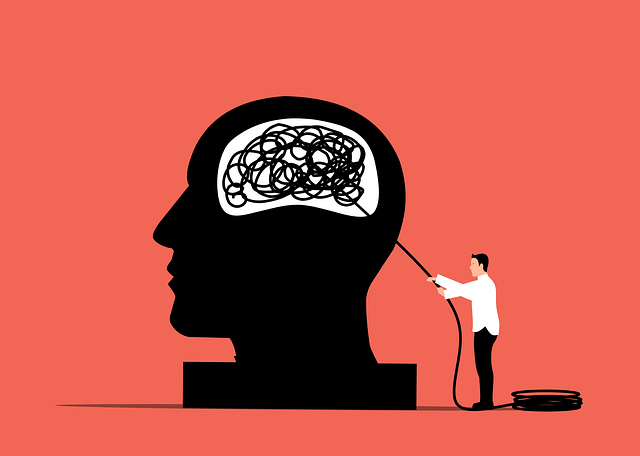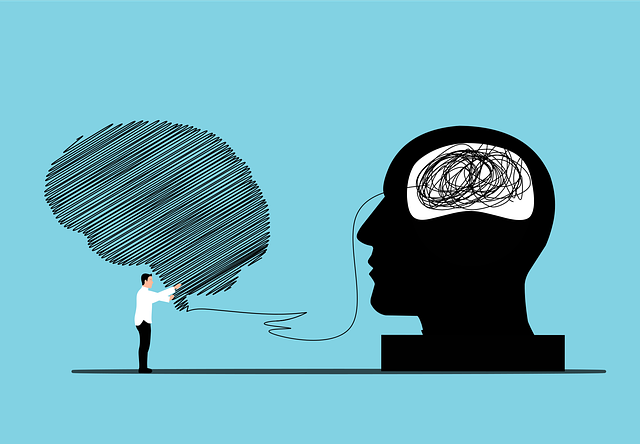Work-related stress, caused by factors like heavy workloads and tight deadlines, can lead to severe mental and physical health issues. Stress relief therapy offers effective solutions through counseling, psychotherapy, and coping strategy teaching. CBT, MBSR, and EMDR are powerful therapy options addressing root causes, promoting better stress management, and cultivating tailored self-care practices. Integrating mindfulness, peer support, and professional help creates a comprehensive stress relief strategy, fostering resilience and improved mental well-being in the workplace. Achieving a sustainable work-life balance is crucial for long-term wellness, making stress relief therapy essential for professionals to create a healthier work environment where they can thrive.
Work-related stress is a prevalent issue, affecting individuals across various industries. This article explores effective stress relief therapy strategies to combat this modern-day challenge. We delve into the understanding of work-related stress, its causes, and symptoms, highlighting the crucial role therapy plays in managing and alleviating workplace pressures. Discover diverse therapeutic approaches, from Cognitive Behavioral Therapy (CBT) guides to mindfulness techniques and peer support networks. Learn how creating a sustainable work-life balance is essential for long-term wellness.
Understanding Work-Related Stress: Causes and Symptoms

Work-related stress is a prevalent issue that can significantly impact an individual’s well-being and productivity. It arises from various factors, often stemming from high workload, tight deadlines, demanding colleagues or supervisors, or a lack of control over one’s tasks. This type of stress can manifest in numerous ways, affecting both mental and physical health. Common symptoms include persistent fatigue, irritability, insomnia, headaches, and difficulty concentrating.
Recognizing the causes and understanding the symptoms are crucial steps towards finding effective solutions. Stress relief therapy offers a range of techniques to manage and mitigate these issues. Through counseling and psychotherapy, individuals can learn coping strategies, improve time management skills, and develop healthier ways of responding to stressful situations. These therapeutic approaches aim to empower people to take control of their well-being and create a more balanced and fulfilling work environment.
The Role of Therapy in Managing Stress Relief

Therapy plays a pivotal role in effectively managing and achieving stress relief, especially for individuals grappling with work-related stress. It provides a safe and structured environment where one can explore the underlying causes and triggers contributing to their stress. Through various therapeutic techniques, such as cognitive behavioural therapy (CBT) or mindfulness practices, individuals learn valuable coping strategies to navigate challenging situations at work.
By engaging in regular sessions with a qualified therapist, people can gain insights into their thought patterns, emotions, and behaviours related to stressful work environments. This process enables them to challenge negative thought cycles and develop healthier ways of responding to demanding work scenarios. Additionally, therapy offers a space for processing difficult feelings, building resilience, and cultivating self-care practices tailored to their unique needs, ultimately fostering better stress management and improved overall well-being.
Different Types of Therapy for Work Stress

When it comes to addressing work-related stress, there’s a variety of therapy options available tailored to different needs and preferences. Cognitive Behavioral Therapy (CBT) is a popular choice, focusing on identifying and changing negative thought patterns that contribute to stress. It equips individuals with coping strategies to manage demanding situations effectively. Another effective approach is Mindfulness-Based Stress Reduction (MBSR), which teaches practitioners to stay present, fostering a sense of calm amidst work pressures.
Additionally, solutions like Eye Movement Desensitization and Reprocessing (EMDR) therapy aids in processing traumatic memories or stressful events related to one’s job. It helps individuals rewire their responses, offering significant stress relief. Each therapy serves as a powerful tool, providing lasting benefits for mental well-being, thereby enhancing overall job satisfaction and productivity.
Cognitive Behavioral Therapy (CBT): A Step-by-Step Guide

Cognitive Behavioral Therapy (CBT) is a highly effective stress relief therapy that helps individuals identify and change negative thought patterns and behaviors contributing to work-related stress. Here’s a step-by-step guide:
1. Identify Stress Triggers: Begin by pinpointing specific work situations or tasks that induce stress. Keep a journal to track these triggers and the associated emotions. This awareness is crucial for effective management.
2. Challenge Negative Thoughts: CBT teaches individuals to recognize and challenge distorted thinking patterns, such as catastrophizing or all-or-nothing thinking. When you notice a negative thought, ask yourself if it’s realistic and consider alternative, more balanced perspectives.
3. Reframe Situations: Once identified, reframe stressful situations in a more positive light. Instead of viewing a deadline as overwhelming, see it as an opportunity to showcase your skills. This shift can significantly reduce stress levels.
4. Develop Coping Strategies: CBT equips individuals with healthy coping strategies like deep breathing exercises, mindfulness meditation, and physical activity. These techniques help regulate emotions during stressful work periods.
5. Set Realistic Goals: Break down tasks into manageable goals. Setting achievable objectives reduces feelings of being overwhelmed and promotes a sense of control over one’s workload.
6. Practice Self-Care: Prioritize self-care activities like adequate sleep, healthy eating, and regular breaks throughout the work day. These habits contribute to overall well-being and resilience against stress.
Mindfulness and Meditation Techniques for On-the-Go Relaxation

In today’s fast-paced work environment, finding moments of calm amidst the chaos is essential for managing work-related stress. Mindfulness and meditation offer powerful tools for on-the-go relaxation. These practices encourage individuals to focus their attention on the present moment, observing their thoughts and sensations without judgment. By cultivating a mindful awareness, one can learn to detach from stressful situations and respond rather than react, leading to improved emotional regulation and overall well-being.
Simple meditation techniques can be easily integrated into daily routines. For instance, taking a few minutes each morning or during lunch breaks to sit quietly and observe one’s breath can help center the mind. Additionally, mindful walking—a practice that involves paying close attention to physical sensations and the surroundings as one walks—can be done almost anywhere, offering a quick stress relief therapy in the midst of a busy workday.
Building a Supportive Network: Peer Support and Professional Help

Building a supportive network is a vital component in managing and overcoming work-related stress. Peer support, whether through colleagues who understand your struggles or professional networks, can offer a sense of community and shared experience. Talking to peers who have faced similar challenges can provide practical advice, emotional comfort, and valuable insights into coping mechanisms that work for them. This network can serve as a safe space to share concerns, vent frustrations, and celebrate successes without fear of judgment.
Professional help in stress relief therapy, such as cognitive-behavioural therapy (CBT) or mindfulness practices, is equally important. Therapists and counselors equipped with these techniques can teach individuals specific skills to manage stress effectively. Through counseling sessions, employees can learn to identify triggers, challenge negative thoughts, practice relaxation techniques, and develop healthier coping strategies tailored to their unique needs. Combining peer support with professional therapy creates a comprehensive approach to work-related stress relief, fostering resilience and improved mental well-being in the workplace.
Creating a Sustainable Work-Life Balance for Long-Term Wellness

In today’s fast-paced work environment, achieving a sustainable work-life balance is more crucial than ever for long-term wellness. The constant pressure to meet deadlines, manage heavy workloads, and maintain high performance levels can lead to overwhelming stress that extends beyond the office hours. This persistent stress not only impacts mental health but also physical well-being, making it essential to implement strategies that promote a healthier equilibrium. One effective approach is incorporating stress relief therapy into one’s routine.
Therapy for work-related stress offers individuals a safe space to explore and manage their feelings. Through various techniques, such as cognitive-behavioral therapy or mindfulness practices, professionals can help clients identify triggers, develop coping mechanisms, and set boundaries. By learning to prioritize self-care and allocate time for relaxation, individuals can reduce the detrimental effects of chronic stress. This, in turn, fosters a healthier work environment where employees are not just surviving but thriving.
